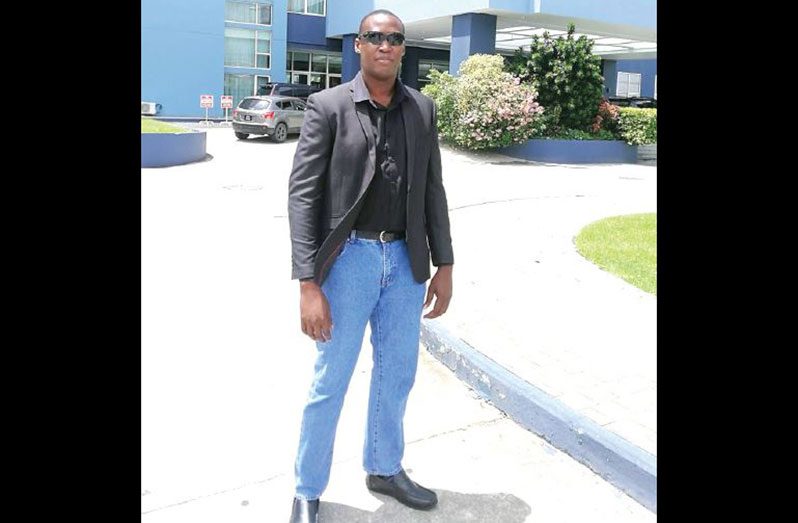FROM time to time, social conversation erupts from various spheres of society which believe that mentorship of boys is important. In Guyana, efforts have been seen by some organisations which seek to address this need in society.
One such organisation in Guyana is the Male Empowerment Network (MEP) led by Richard Collymore. The organisation is committed to ensuring that the business community, in tandem with the general populace, gets involved in mentorship for both boys and young men.
“We have done empowerment sessions at the Sophia Juvenile Centre, particularly to develop a mentorship programme for those boys, which will promote mentorship support for those boys beyond the juvenile settings,” Collymore explained in an interview with the Pepperpot Magazine. “So we are engaging business owners to get involved in mentorship activities on a weekly basis, but also to make employment available for those boys who really want to make a positive impact /change in their lives after they would have left the Juvenile Centre, through the involvement of the business community.”
Systems being put into place to curb domestic violence
According to Collymore, his organisation is putting a lot in place to curb domestic violence in Guyana and he believes that mentorship can positively contribute to this goal.

“We are putting a lot of resources in place to curb domestic violence, to reduce child abuse, to reduce violence against women, to have a reduction in gender-based violence, but almost all of our resources are aimed at supporting the victims and not necessarily the abusers. If there are no programmes in place to support abusers all that you are allowing the abusers to do is to move from one abusive relationship to the other,” Collymore explained.
Collymore is of the firm view that if the problem is going to be solved, it is about time that society starts looking at the root cause of the problem.
According to Collymore, if resources are focused heavily on tackling the problem and dealing with the root cause, then sustainable change would not be actualised.
Collymore believes that the root causes of abuse in relationships committed by men stem from their boyhood. Hence, if this behaviour is curbed, then it can be totally eradicated in the stage of manhood.
It is against this backdrop that Collymore’s organisation has been working on social development programming to address critical issues.
“We have missing male role models in our society. We have a lot of absentee fathers,” he said. This, according to Collymore and his research, isn’t unique to Guyana. “Throughout the Caribbean, we have about 67 percent female-headed households. Therefore, if we want to effect change, we have to start working with the men when they are boys. It is harder to bend a branch when it is already grown and stiff. Therefore behaviour in boys needs to be adjusted in order to achieve the desired results.Train your son to become the kind of man, your daughter will be proud to meet.”
According to Collymore, in many cases, disappointment felt by many single mothers raising sons often transcend in their parenting of young boys. Collymore vehemently stressed the point that we need to mentor our young men.
“We cannot cross the cycle of abuse from working with the men. When we are abusing them when they are boys, you are teaching them, if you don’t do what I say, you will get licks, and that is the only way to learn to do what I want you to do. Therefore what he was taught as a child is now unacceptable in society,” Collymore posited. Collymore expressed that his organisation is committed to working to ensure that young men and boys receive the type of mentorship that can help to change those behaviours.
The MEP is not the only organisation that focuses on the connection between mentorship and curbing gender-based violence. The United Nations Spotlight Initiative which is a global initiative that receives major support from the European Union, also focuses on tackling Gender-Based Violence. In Guyana, the Spotlight Initiative also has a mentorship/training component that focuses on sensitising young boys.
Such initiatives include working with youth. In Baramita, Region 1, football coaching was used to engage young men on gender-based violence, as part of the Spotlight Initiative. Sessions focused on toxic masculinity, financial planning, teamwork, and leadership. The Spotlight Initiative also hosted Gender-Based Violence sensitisation sessions with members of the Guyana Football Federation and the Georgetown Cricket Board. The content aimed at addressing traditional concepts and beliefs about masculinity and gender roles and how they play a part in gender-based violence. Other aspects of the sessions also looked at the legal framework in Guyana that addresses the protection of human rights such as Guyana’s Constitution and other legislation, like The Equal Rights Act (1990), the Domestic Violence Act (1996), the Prevention of Discrimination Act (1997), the Protection of Children Act (2009) and Sexual Offences Act (2010).




.png)









